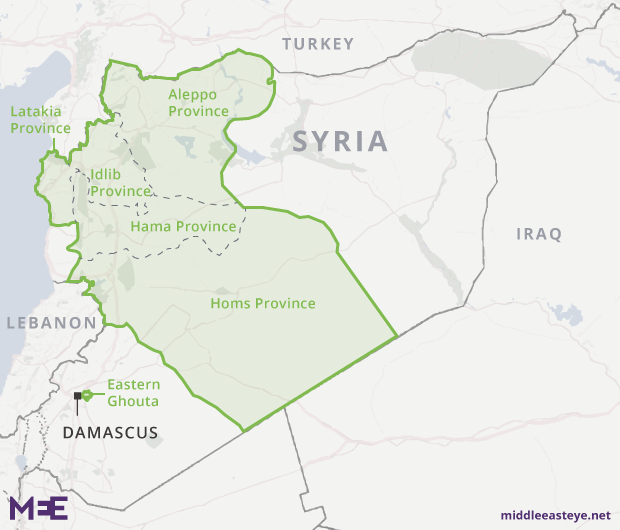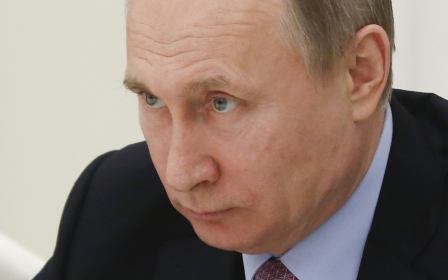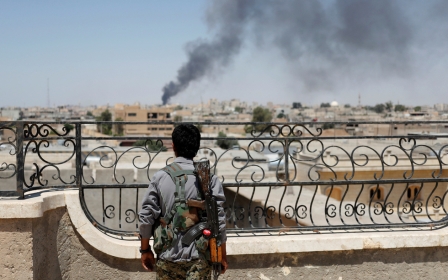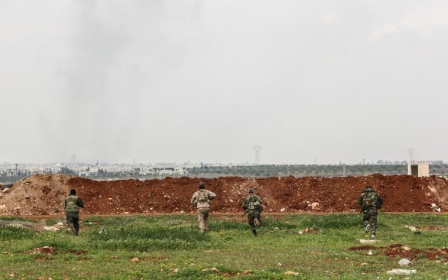Turkey, Iran and Russia to deploy observers around Syria's Idlib

Russia, Iran and Turkey will post observers on the edge of a de-escalation zone in northern Syria’s Idlib region largely controlled by Islamist militants, the three nations said on Friday.
The move is part of a broader plan under which Moscow, Tehran and Ankara will set up four such zones in different parts of Syria, an idea described by critics as de facto partitioning of the war-torn nation.
They agreed details of the plans to set up de-escalation zones in Syria for six months, negotiators for the three nations said in a joint statement on Friday.
The zones will include Eastern Ghouta, the provinces of Idlib, Homs, Latakia, Aleppo and Hama, according to the statement. The six-month term, which was agreed after talks in Kazakhstan's capital Astana, may be extended in the future.
The states agreed to deploy observers around the zones, which are largely controlled by Islamist militants, Turkey's foreign ministry said. It described the deal as the "final stage" in a long process of establishing safe zones in Syria, following an agreement made in Astana in May between Turkey, Russia and Iran.
Final stage of talks
"Observers from these three countries will be deployed at check and observation points in safe zones that form the borders of the de-escalation zone," Turkey's foreign ministry said in a statement. "The main mission of these observers has been defined as the prevention of clashes between the regime and the opposition forces and any violations of the truce."
The Astana meetings, which also included representatives from the Syrian government and opposition, were the sixth round of talks focused on implementing the May agreement on safe zones in four areas of the war-torn state. They aimed to finalise key details of how the temporary arrangement will work.
Earlier talks in July had fallen short after Turkey raised objections. Russia and Iran have been strong supporters of Bashar al-Assad during Syria's six-year civil war, while Turkey has backed rebel factions fighting against the government.
The May plans for de-escalation zones, with Russia, Iran and Turkey as guarantors, were initially revealed in a statement from the Russian foreign ministry. It expressed a commitment to the sovereignty and territorial integrity of Syria and said it was guided by the aim of easing military tensions and providing for the security of civilians.
A decline in violence
Within the lines of the de-escalation zones it is intended that hostilities will be suspended and humanitarian access provided, and the parties will begin work to restore infrastructure destroyed by the conflict. Refugees and internally displaced people will be able to return to the area, according to the statement.
"This announcement of a de-escalation zone in Idlib constitutes the final stage of the realisation of the memorandum signed in May," the Turkish foreign ministry said, adding that the accord had brought a significant decline in violence.
"With this latest development, the memorandum is making a significant contribution to providing necessary conditions to further the political solution process going on in Geneva under UN monitoring."
Middle East Eye propose une couverture et une analyse indépendantes et incomparables du Moyen-Orient, de l’Afrique du Nord et d’autres régions du monde. Pour en savoir plus sur la reprise de ce contenu et les frais qui s’appliquent, veuillez remplir ce formulaire [en anglais]. Pour en savoir plus sur MEE, cliquez ici [en anglais].





